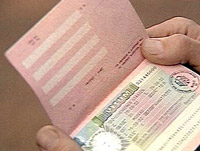In order to prove that the development of the relations with Europe is a priority for Armenia it is emphasized that the European Union is the number one trade and economic partner for Armenia. It means that most part of the trade circulation with foreign countries is done with the countries of the EU.
Even though the trade circulation was cut down due to the world crisis, according to the official statistics during 2009 the official trade circulation between Armenia and EU countries reached 1.2 billion dollars, which is equal to the 30% of the overall trade circulation. The trade circulation developed very fast, and while it was 687.4 million dollars in 2003, it reached 1.7 billion in 2008. It means that during five years the trade circulation between the EU and Armenia grew by 2.5 times. From this point of view the adoption of the GSP+ regime was a very important decision. Till 2009 Armenia used to benefit from the generalized system of preferences (GSP) trade regime. Starting from January 1, 2009, it was replaced with the GSP+ trade regime, which enables the member countries to export around 6400 types of products to EU markets with reduced or zero customs payments. The regime, which will work till the end of 2011, will support the growth of the trade capacity between Armenia and the EU and exportation of Armenia products to EU markets. Currently the parties are negotiating on transforming to the regime of free trade. Usually such negotiations last 1-2 years, and if the negotiations are successful, Armenia may be included in the system, which is free of trade customs payments.
The economic cooperation is not about trading only. It would be better if there were joint business projects, investments by European companies, etc. We still lack this component and there are a lot of reasons for that. For example, for Europeans the low level of information and differences of thinking are serious obstacles. “As a rule the Armenian businessmen have a very narrow vision in business planning. They don’t plan for 3-5 years, thus in order to grow to a better level of cooperation with Europe they should start thinking this way from now on,” once said the head of the AEPLAC, Aleksey Sekarev. The AEPLAC tried to solve this issue by organizing a seminar to introduce the Armenian businessmen with the current phase and opportunities of Armenia-EU cooperation.
However there is another important obstacle, which in fact hinders the dynamic development of Armenia-EU economic relations. And this concerns people’s right for free movement, i.e. the visa regime. Armenia-Europe economic development cannot develop fast if businessmen don’t have the opportunity to visit the countries they want and have meetings with their counterparts. There is a contradiction here. During the meeting organized by the AEPLAC a number of European experts introduced the Armenian businessmen with the standards, business environment, trade regime and prospects of the European market. However, if one of these Armenian businessmen wants to travel to Europe to see the business environment in the place they may be refused to be issued entry visas.
We will bring an example, which is not connected with business but still shows the situation with this issue. During several months there was a conference with participation of the leading experts of the research institutes of Europe in Strasbourg. A doctor from the Armenian medical genetics center, G.Shahsuvaryan was invited to take part in that event too. The Embassy of France in Armenia failed to issue a visa to this doctor. Even the invitation sent by the organizers did not serve a trustable guarantee for the Embassy to issue an entry visa. The doctor told a newspaper that all his letters sent to the Embassy and consul were left without an answer, which is really very annoying. We can bring more examples to show that such important initiatives were prevented because of this problem.
On the other hand, the Europeans understand that the strict visa regime affects the economic cooperation too. For example, during his business trip to Russia the PACE chairperson said that the visa regime with Russia is not liberal and pledged that it does not support the exchange of students, scientific and business cooperation. Even though they spoke of the visa regime with Russia, but it concerns our country as well because it is more difficult for the Armenians to get a visa to European countries than for the Russians. It is good that the EU leadership have decided to make some steps in this direction to change the situation. Thus, it is possible that they may ease the visa regime with Armenia. In the beginning of March the foreign affairs minister of Spain, Mr. Moratinos was in Armenia and said that the cooperation between Armenia and the EU to enlarge the contacts and cooperation within the framework of the European Neighborhood Policy and Eastern Partnership Project still continues. From this point of view he spoke of the need to ease the visa regime and said, “I have assured my Armenian counterparts that we are going to work in the direction of security and necessary actions to ease the visa regime. We will do it as soon as possible.”

